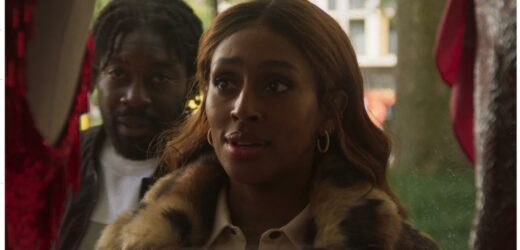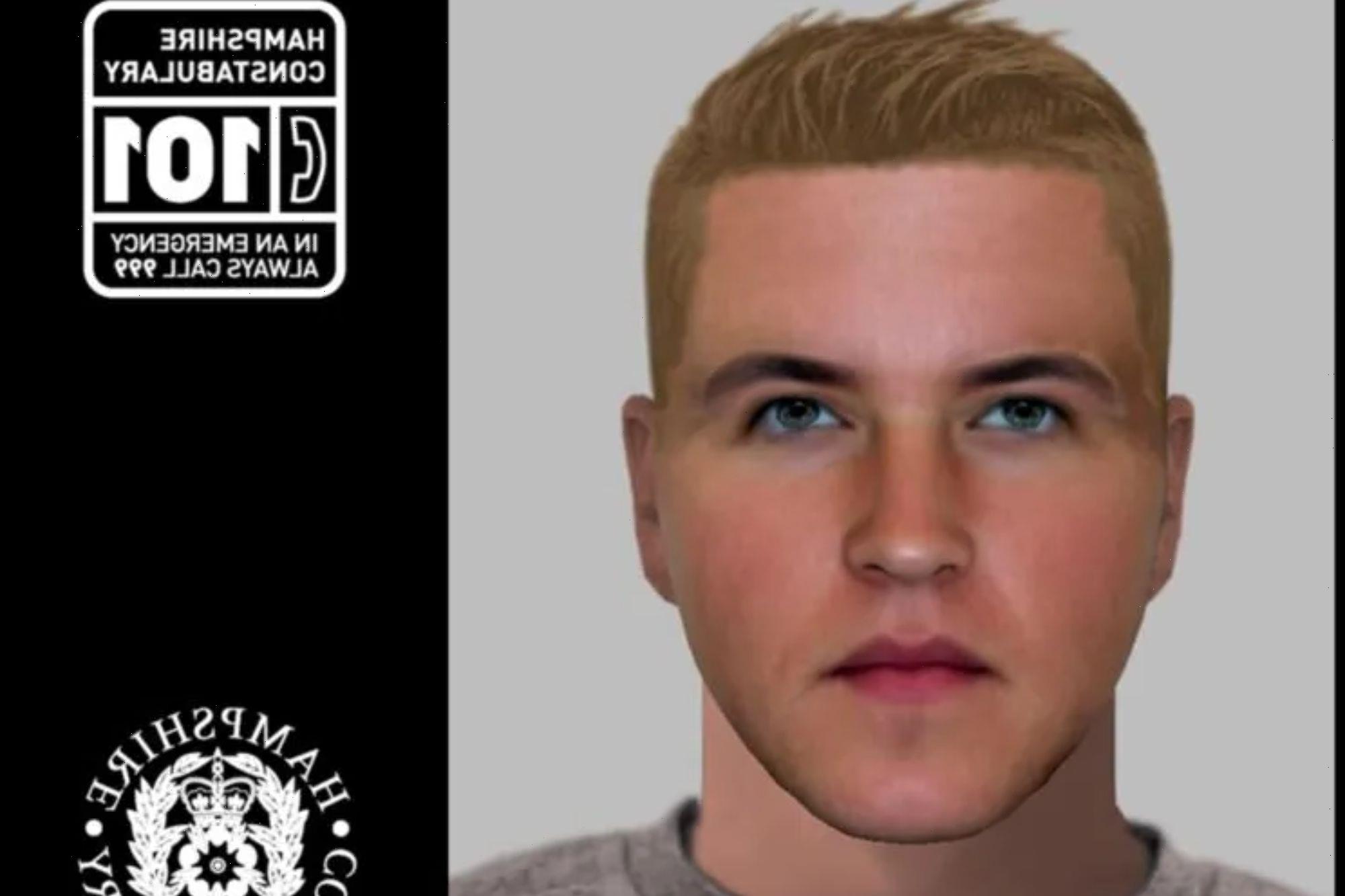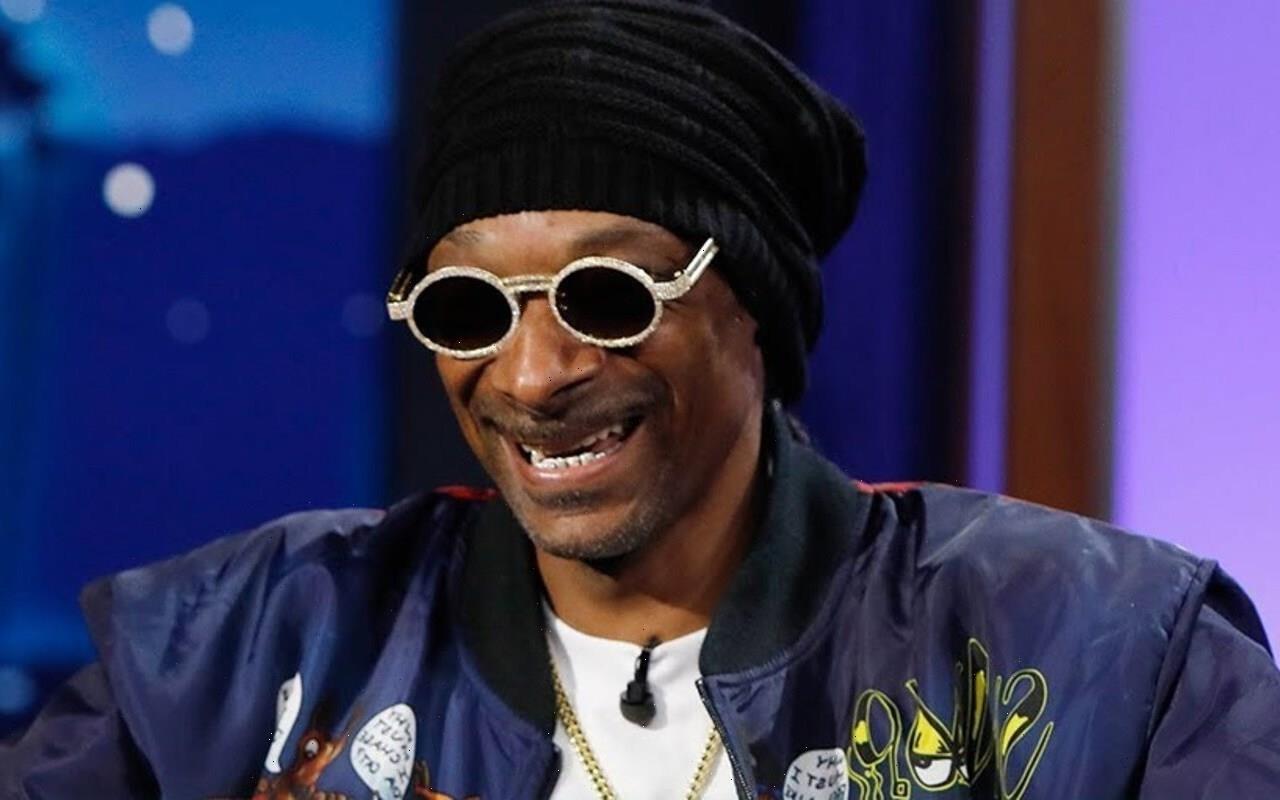In contemporary British drama “Pretty Red Dress,” which has its world premiere on Oct. 9 at the BFI London Film Festival, Dionne Edwards delivers a portrait of London life that embraces both its “grit and glamour.” It was a look and feel that was inspired by “Saturday Night Fever,” says the writer-director.
The film kicks off with Travis, a tough, black guy from South London with a gangland past, being released from prison, to be met by his partner Candice. We learn that their daughter, Kenisha, is in trouble at school for fighting, and that Candice, who works in a grocery store, has a thwarted ambition: she wants to be a professional singer. We discover too that both Travis and Kenisha have aspects of their personalities that they keep hidden.
As Candice progresses through auditions to play Tina Turner in a musical, we see the glamorous side of her, which has been dulled by the grind of looking after her family. This glamour is represented by an elegant red dress that she treasures, and which comes to embody her dreams. However, she is not the only one with their eyes on the dress, and when she discovers Travis wearing it, their fragile world is blown apart.
The actor playing Candice is perfectly suited to expressing the star-quality of the character. Alexandra Burke won “The X-Factor” in the U.K., and was runner-up in “Strictly Come Dancing,” the British version of “Dancing With the Stars.” She has released three albums, and has sold more than 5 million records in the U.K., drummed up more than 160 million streams, and has appeared in a string of WestEnd musicals, including “The Bodyguard.”
But the project began with the character of Travis, Edwards says, and a conversation in 2014 with her long-time producer Georgia Goggin. “I thought it’d be really interesting if you had this guy who’d been involved in gangs and had this quite tough life, but at the same time was hiding this thing about himself, and was at a point where it had to come out,” Edwards says.

Edwards and Goggin had produced five shorts together, including their 2016 film “We Love Moses,” which also premiered at the BFI London Film Festival and went on to screen at more than 50 festivals worldwide, picking up nine awards. It was licensed for television by Cine+, Canal+, HBO, Netflix and Disney+.
The success of “Moses” helped them get “Pretty Red Dress” made, Goggin says. “There is a clear style connection between ‘Moses’ and ‘Pretty Red Dress,’ which I think is what got everybody excited. It showed that Dionne had a very specific way of telling stories, and a tone and a voice. And because we’ve worked together for so long, it made it easier for us to get funding.”
They developed “Pretty Red Dress” for several years. Creative England supported the first draft of the script in 2017, and it was subsequently taken on by the British Film Institute, which continued the development through 2018, before BBC Film boarded the project in 2019.
The project was given a shot of adrenalin when Edwards was invited to develop it in the Sundance Institute’s Screenwriting Lab and Directing Lab in 2019, while Goggin was invited to take it to the Sundance Creative Producing Summit in the same year. Protagonist came on board as sales agent at the end of 2019.
Part of Edwards’ reason for looking at Travis’ predicament came out of her “interest in exploring femininity and masculinity, and how we all have different versions of that in ourselves.”
Although the focus is on Travis’ efforts to reconcile the different sides of his personality, Candice and Kenisha are also struggling with traditional notions of gender roles. “[They] have different shades of masculinity in them, as well as femininity. And so, I was just trying to show that this family are very layered and nuanced, and can’t necessarily be boxed into one thing. And I think that’s true of a lot of people. But sometimes people don’t feel that they can fully express that. So, for me, yeah, it was just about having a conversation about it, and showing that people have all different shades within them.”
These tensions show themselves in the sex scenes between Travis and Candice, which are varied – at times she is dominant and at others, he is – but each occasion is awkward and raw both for the characters and the viewers. Edwards suggests that the sense of unease comes from the feeling that “you were watching something, and were in [the room] when you shouldn’t have been.”
She adds: “I wanted it to feel like it was quite close to real life, as if it was unfolding in front of you. And if there is a sense of awkwardness, that’s hopefully because you feel like you’re there with those characters. I think that was what was really important.
“But as far as those sex scenes go, I was trying to show the different shades of people’s sexuality. You know, the thing is that you are voluntarily enjoying that in a way. And it can be seen as a negative thing and can also be seen as a positive thing that there are different modes of exploration in sexual relationships, which aren’t always expressed on the screen.”
In some respects, Travis conforms to the image of black men often portrayed in British drama: the tough guy from the world of gangs. But there is more to him than that, and that is also true of the other black characters in the film.
“Yeah, so it’s hard because I think we all slip into cliches to some degree,” Edwards says. “I wasn’t necessarily reacting to cliches as much I was just trying to make it feel as real as possible. There are some areas of a personality, Travis for example, that you might associate with typical characters in black cinema. You might have certain associations with that, but you get to see sides of him that you wouldn’t necessarily expect. I was just trying to be as truthful as possible. Sometimes you get some things in there that are going to be seen as stereotypical, but hopefully there’s enough layers to [the characters] for them to be quite full and nuanced.”
The issue of cross-dressing highlights other questions Travis is struggling with, and this leads him into conflict with others. “There’s something he almost wants to punish himself for, after the journey he’s gone on. A lot of the homophobia and the issues he has come from within him and his own self-policing, which is, of course, a result of the world he’s in. I didn’t want it just to be about: ‘Everyone’s being homophobic.’ At the same time, because the daughter, Kenisha, has boasted around the school that her dad’s this tough guy, and he’s this and he’s that, that when [he’s caught cross-dressing], there’s some sort of reaction, isn’t there?”
Casting director Elan Jones led the search for the actors, but finding Travis, a part that eventually went to Natey Jones, was made more fraught as many talented actors baulked at the prospect of wearing a dress.
Edwards says: “We did have a lot of actors auditioning. We were after someone who you could believe obviously had that tough side to them, has that authentic side to them, but also, you can believe that he puts the dress on and feels completely comfortable in it.
“We had to audition a lot of guys with the dress on and then there was just a lot of guys that just didn’t want to do it. Or they’d be interested in the tough part of the character, and auditioning the scenes where they got to get into confrontations, but then when it came to the dress side, or the feminine side, they were very resistant.
“Some people would have second or third auditions and then say they didn’t want to do it anymore. Yeah, they didn’t want to continue auditioning.”
Goggin adds: “We had to change our tactic. Because when we started casting, we’re being really sensitive and trying to be like, ‘Your first scene will just be a family scene or a scene with the boys or something.’ And when you come to the second audition, then we’ll do the dress. But we were seeing so many guys and being excited about them, and then they’d be like, ‘Oh, no, now I have to wear a dress. I’m not coming to second audition.’ So then we changed tactic, and it became: ‘You have to wear a dress. Day one. Otherwise it’s not going to work.’”
The upside of this audition process is that they found a lot of talented black actors. Goggin says: “It was great, incredible. I mean, the amount of young, talented young black men. We were like: ‘If only there were more parts for them. I mean, it’s just the breadth and depth of that talent. It’s great because I kept feeling like we were going: ‘Well, not for this movie, but you know, noted for the future because there were just so many great guys.”
Finding Kenisha was less fraught. Temilola Olatunbosun, who Edwards describes as “brilliant” and a “natural,” was discovered by Jones through street casting. “The camera can be right in front of her face and she can just play it so naturally. She’s the coolest person in the world,” Edwards says. “She’s so relaxed on set,” Goggin adds.
Recalling seeing Burke’s audition tape, Edwards says: “There was just something about it. I saw this really raw quality in her that I connected to. And then, of course, she’s a star. She has that star quality. And that’s what we were looking for: Someone who felt like they’d not quite made it, but is this big fish in a small pond, and really needed to break out. And I think she really did that.”
Goggin adds: “Alexandra’s history is that she became famous because she won ‘X-Factor.’ So she, in some respects, had had Candice’s dream life. “I’d seen her on ‘Strictly Come Dancing’ and she had danced to a Tina Turner song in that and had done a jive. And she was just astonishing. And I was like, ‘Oh my God, if you could put that energy into Candice, that star quality, that would be so incredible on the screen.’ And that is totally what she’s brought to it.”
Edwards says: “Yeah, she has an amazing work ethic and she’s just up for anything. So she’s an absolute pleasure to direct in a way because she’s unafraid of being big and bold and she just went for it every single time.”
Goggin says: “She and Natey had such great chemistry straightaway, and when we saw them with Temi, they were just like a family straightaway. Temi is energetic and Alex is like a meteor and is just so bright, but Travis had this way of being very still with them, which just made this family work – it just made sense. Suddenly all their energies matched up. It was just so satisfying that day.”
As well as “Saturday Night Fever,” other influences on the film’s look, Edwards says, included Franco Rosso’s “Babylon,” which captured the trials and tribulations of young black youths in troubled London in the late 1970s. One of the film’s cast, Mark Monero, has a small part in “Pretty Red Dress.” Another influence is Martin Scorsese’s “Alice Doesn’t Live Here Anymore.” “It’s this idea of having this very well-designed camerawork that feels like it’s spontaneous, because it’s hand-held,” Edwards says.
Although the director was influenced by black British gang films like “Kidulthood” and “Bullet Boy,” she didn’t want London to feel as grim and gritty as the concrete and steel landscapes seen in those types of urban dramas. It is portrayed as a far greener city, with its parks and tree-lined streets.
The film also has plenty of moments of humor in it. “A lot of films like that, often times they’re quite serious. And, actually, the reality of it is that in a lot of these worlds, it’s quite funny, and people see the humor in things as well,” Edwards says.
Goggin adds: “Everything we’ve made has humor in it. I think it’s just who we are. I don’t think we’d ever make anything really po-faced. Everybody finds humour in every situation. If you manage to tell a 100% straight misery story, I just feel like you’ve missed some aspects of human life.”
Having got their debut feature under their belts, Edwards and Goggin are now working on their second and third feature films. The second is in development with BBC Film. On the third film, Goggin is a co-writer alongside Edwards. The pair will also be developing TV projects.
Meanwhile, they are looking forward to accompanying “Pretty Red Dress” on a tour of international festivals. “We had an incredible experience travelling with our short ‘We Love Moses,’” Goggin says. “We went all over the place with our film, and seeing that film connect with audiences in different places was one of the most rewarding experiences I’ve had. It just gives you the energy to go and make more films. I feel like we need it to carry us into the second film, you know, to have that experience of the film connecting.”
Read More About:
Source: Read Full Article


